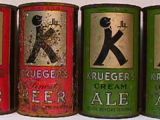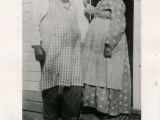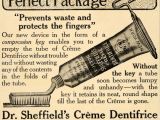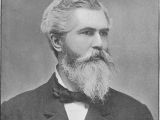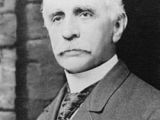We, modern humans - official nomenclature Homo sapiens sapiens as in genus Homo, species sapiens and subspecies also sapiens - have been walking the Earth for tens of thousands of years now.
Skeletal remains uncovered and studied by researchers show that anatomically modern humans such as us emerged around 200,000 years ago. Fast forward to this day and age, and we're the world's indisputable dominant species.
Now, we all know the life of the first modern humans was very different to our daily routine. Hunting, gathering and then growing crops and looking after their animals were the chief preoccupations of the early Homo sapiens sapiens.
What's interesting is that, merely a few decades ago, life as a modern human was also a much different experience compared to what we are accustomed to. Many of the everyday commodities we take for granted aren't quite as old as some might think.
Au contraire, they were only invented in recent years. Well, not recent as in yesteryear. Recent as in many millennia after we first emerged as a species. If you feel like a history lesson, here are some of them.
5. Canned beer
There are few things quite as satisfying as cracking open a can of cold beer on a hot summer's day, especially after a long day at the office. A few generations back though, there wouldn't have been any beer cans for you to chug down.
The first beer cans, the work of Krueger's Finest Beer and Krueger's Cream Ale, went on sale in January 1935 in Richmond, Virginia.
True, the actual cans, designed and manufactured by American Can Company, had been around for over a year. Still, it was Krueger's Finest Beer and Krueger's Cream Ale that dared take the plunge and actually put beer in them.
They were an instant hit. So much so that, by the year was over, nearly 40 other breweries rolled out their own canned beer. Well, cheers to that!
4. The movies
The global movie industry is predicted to land a revenue of over $88 billion (€78 billion) this year alone. Then, by 2019, experts expect it will be looking at profits of more than $100 billion (€88.6 billion). Kind of makes you wish you'd go into the business yourself, doesn't it?
About a century ago, however, there weren't any movies to watch. It was only in the 1890s that the first motion picture cameras were invented and the first film production companies came into being.
In those days, they didn't even speak of movies. They called them moving pictures, as in pictures that moved. Since there was no sound, no plot and no story - the focus was just on movement - it made perfect sense to embrace this designation.
Some of the earliest movie shorts, the work of the Lumière brothers, were merely 15 to 30 seconds long. They showed men playing cards, street vendors going about their business or a train leaving the station. No adrenaline rush and definitely no special effects.
Meanwhile, Thomas A. Edison in the US was making movie shorts showing waves in the ocean or water gurgling over Niagara Falls. Pretty basic stuff, but quite a hit in those days.
Then, in the 1900s, they started making films about 5 to 8 minutes long - a major step forward. They also started adding a story to the, erm, moving pictures. For instance, “The Great Train Robbery,” which came out in 1903, told the story of a robbery, complete with a chase scene.
David W. Griffith's “Birth of a Nation,” also silent but running over 3 hours, came out in 1915. These days, it's considered the first successful full-length feature film. Things snowballed, and today, the movie industry is pretty much flourishing.
3. Potato chips
Speaking of movies, we're gonna go out on a limb here and assume you like snacking on one treat or another while enjoying the latest blockbuster. If potato chips are your absolute favorite, you should be really glad you live in this day and age.
You see, it wasn't until 1853 that the first potato chips came out of a frying pan. Word has it they were cooked by one George Crum, a chef at a high-end restaurant near Saratoga Springs, New York.
Upset that one customer kept complaining that his fries weren't crunchy and salty enough to satisfy his taste buds, George Crum sliced some potatoes freakishly thin and then poured copious amounts of salt on them. The disgruntled customer adored them.
Interestingly, in the UK, it's food writer William Kitchiner and his 1822 cookbook “The Cook's Oracle” that are credited with the invention of today's crisps. Thus, the cookbook describes what William Kichiner called “potatoes fried in slices or shavings.”
“Peel large potatoes, slice them about a quarter of an inch thick, or cut them in shavings round and round, as you would peel a lemon. Dry them well in a clean cloth, and fry them in lard or dripping,” the recipe goes. Apparently, George Crum wasn't the first to make super thin fried potato slices.
All the same, it wasn't until the early 20th century that potato chips made it out of restaurants and started being mass-produced for people to enjoy at home. The first potato chips came in barrels or tins. In the 1920s, Laura Scudder ironed together two sheets of wax paper and made the first airtight bags.
It is unclear whether these first bags of chips contained quite as much air as modern ones, but let's assume that they did so we won't grow jealous of our ancestors.
2. Toothpaste
Potato chips might be utterly delicious, but they do have this habit of sticking to your teeth. If sore gums and cavities aren't your thing, you should be grateful to the gods that you have toothpaste to help keep your chompers clean.
In Ancient Egypt, they would make toothpaste by crushing salt, mint, pepper and dried iris flowers, and mixing them together. In the 18th century, some people would scrub their teeth with a powder made from burnt bread. It was sort of like grooming and having breakfast all rolled into one.
In fact, before the 1850s, toothpaste came in the form of powder. Soap, chalk and even charcoal were among the rather peculiar ingredients that they would put in toothpaste in those days.
In 1873, Colgate introduced the world to commercially produced, nice-smelling toothpaste. It came in a jar and it wasn't until 1892 that American dental surgeon Washington Sheffield came up with the idea to put toothpaste in a collapsible tube like the ones we use nowadays.
Even so, fluoride, known to fight cavities, was only added to toothpaste in 1914. As for toothpaste promising to brighten up people's smile and make their teeth perfectly white, it wasn't introduced until a few decades later.
1. Toilet paper
In ancient times, the Chinese would make toilet paper from bamboo and cotton rags soaked in water, beaten into a pulp and then made into sheets and dried. The rolls we're used to, however, took centuries to emerge and become quite as popular as they are these days.
American inventor Joseph C. Gayetty of Massachusetts is credited with the invention of commercial toilet paper, which he began marketing in December 1857.
Funny thing, Joseph C. Gayetty's toilet paper, which came in packages of 500 sheets, was actually called Therapeutic Paper. That was because it was soaked in aloe and was meant as an anti-hemorrhoid medical product. Even funnier, the inventor's name was printed on every sheet.
The first toilet paper rolls were introduced in 1879 by the Scott Paper Company. It took a few years for the invention to catch on, but thank the heavens it did. Then, in 1942, England's St. Andrews Paper Mill debuted two-ply toilet paper, considerably smoother than its predecessors.
So, you see, if we had been born just a few decades earlier, our lives would have been much different. Now I don't know about you, but I for one am pretty darn grateful I have potato chips to eat and don't have to wash my teeth with burnt bread crumbs.
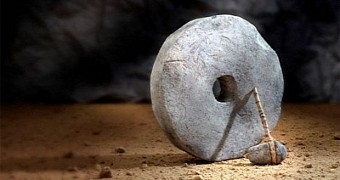
 14 DAY TRIAL //
14 DAY TRIAL // 


